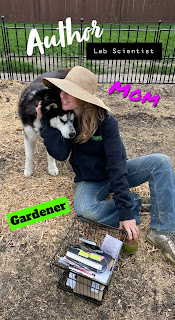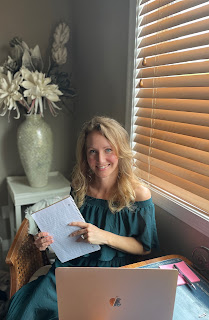I didn’t necessarily want to be a writer. Certainly no one ever suggested it. The first person to mention it was a high school biology teacher who told me he’d haunt me if I didn’t end up a writer. I preened, but I also smiled and nodded and dismissed the comment because I'd already had The Talk.
Writing doesn't put food on the table.
So I didn't want to be a writer. Telling myself stories was just something I did. It was a way to pass the time until I got where I really wanted to go. The Air Force Academy. I was going to fly fighter jets. Yeah, I didn’t care that women couldn’t pilot fighters in those days. It was a stupid ass rule then and it’s changed now. I was confident that if I got to the academy, I could and would change minds. I studied hard.
All the while, I told myself stories. I did that because no one knew my childhood was filled with sleepless nights. I thought it took everyone two to three hours to fall asleep every night. I didn’t question. I just filled those hours in the quiet and the dark spinning unlikely adventures in my head. Finally, one boring summer, I borrowed Mom’s typewriter and committed a few of those unlikely adventures to paper. But it was just a lark. I was going to the Air Force Academy.
Stories were my therapy; a place to dump the angst of the day. I kept writing them down. Got made fun of a few times when people would run across a page and read it. It didn’t matter. I wasn’t going to stop. It was too useful a tool and it was something to do until I got where I wanted to go.
When my father found a page and scoffed at the admittedly terrible writing, I got the dinner table lecture. You know the one. Writing doesn’t put food on the table. I, responsibly, I thought, refrained from asking him who wrote newspapers and magazines and TV shows and movies. Instead, I responded that I didn’t want to be a writer. I wanted to be a pilot. Dad looked disappointed. You should be an engineer, he said. To make him happy, I took technical drawing to see if I could master even the simplest part of being an engineer. No. That answer was decidedly no. I couldn’t. Back to piloting. I joined the Civil Air Patrol as a steppingstone to the Air Force Academy. I joined the Sea Scouts – padding the resume, you know.
And then, at a physical during my sophomore year in high school, my doctor had to sit me down and explain to me why I would never join the military, much less go to the Air Force Academy. It was a medical issue – genetic. Nothing to be done about it except to accept the hard facts. And honestly, if you know me, you already know the military was an epically stupid idea given my issues with authority. I soothed myself with stories, but I still wasn’t interested in being a writer. It was just a past time - something I did to make myself feel better.
I won’t lie. I flailed for a few years. What do you do when you lose the thing you thought you’d wanted? I went to college because it was something to do – not because I had anything in mind. A psychology professor tossed off a comment – Marcella processes the world through writing – that burrowed in, and the thought finally landed. Maybe I could be a writer. Maybe my silly little stories could mean something to someone besides me. What if they could?
Detours ensued. Jobs – because poverty sucks. Life. A few published books under my belt.
And here I am. Proving my dad wrong. I am putting food on the table because I’m writing. Granted. It isn’t fiction, necessarily, though that happens, too. I’m a technical writer in my day job. It’s writing. It pays well. I still tell myself stories. Sometimes, those stories mature enough to make it out into the world for other people to read, though admittedly, it takes longer now with a day job. Do I still dream of writing a great big hit and retreating to the ivory tower of writing full time? Of course. But until that day I pay bills with writing. And I tell myself silly stories. You should do that last bit for yourself, too.






.png)





